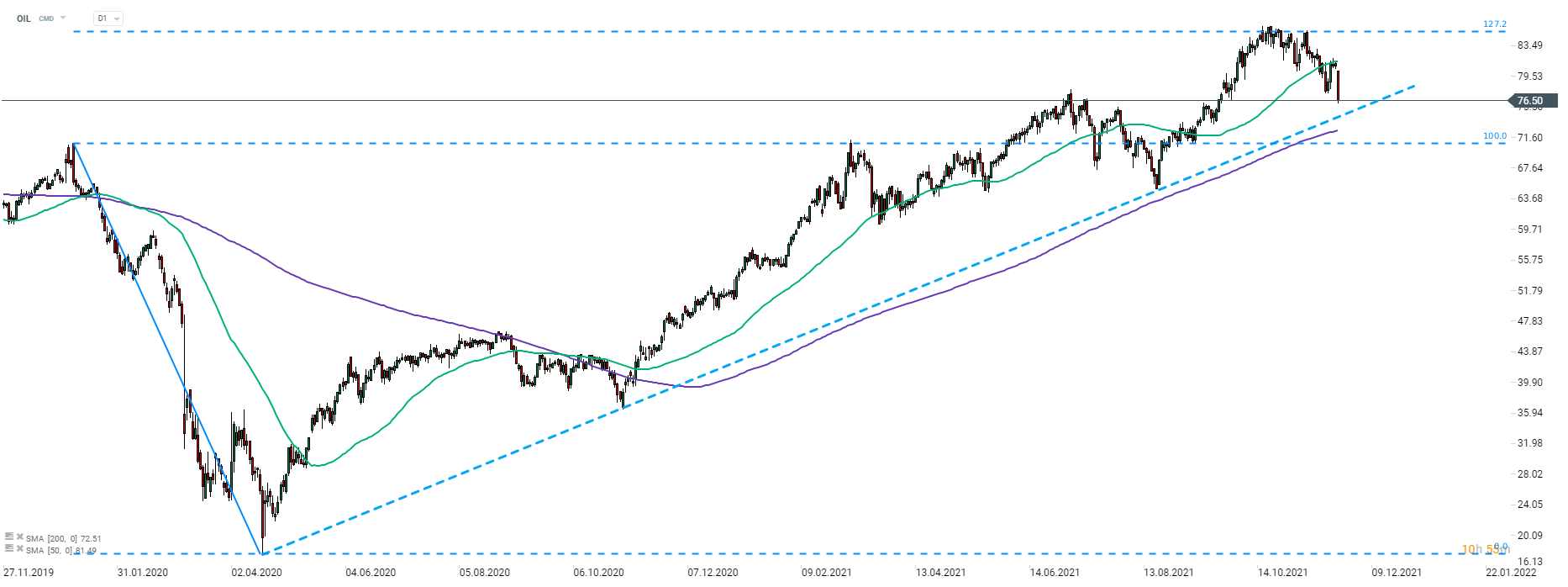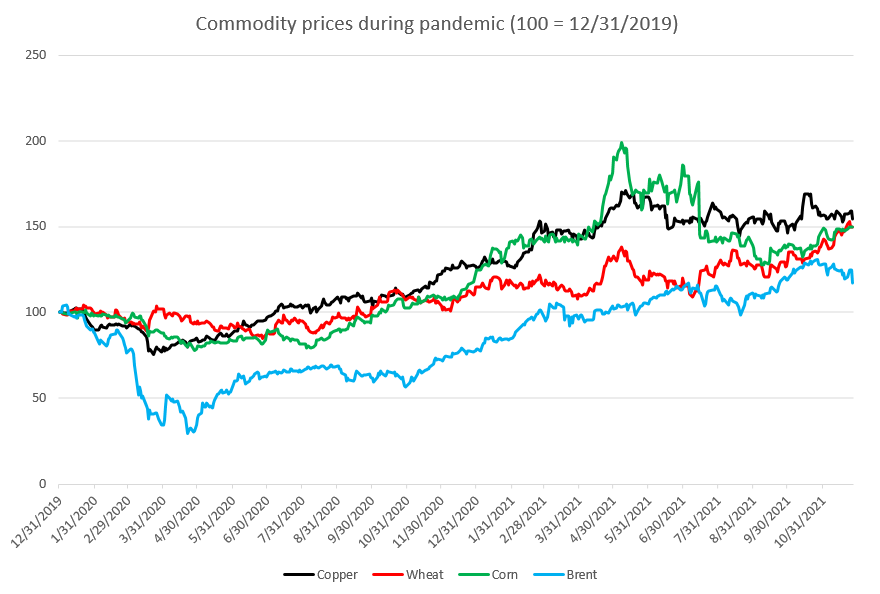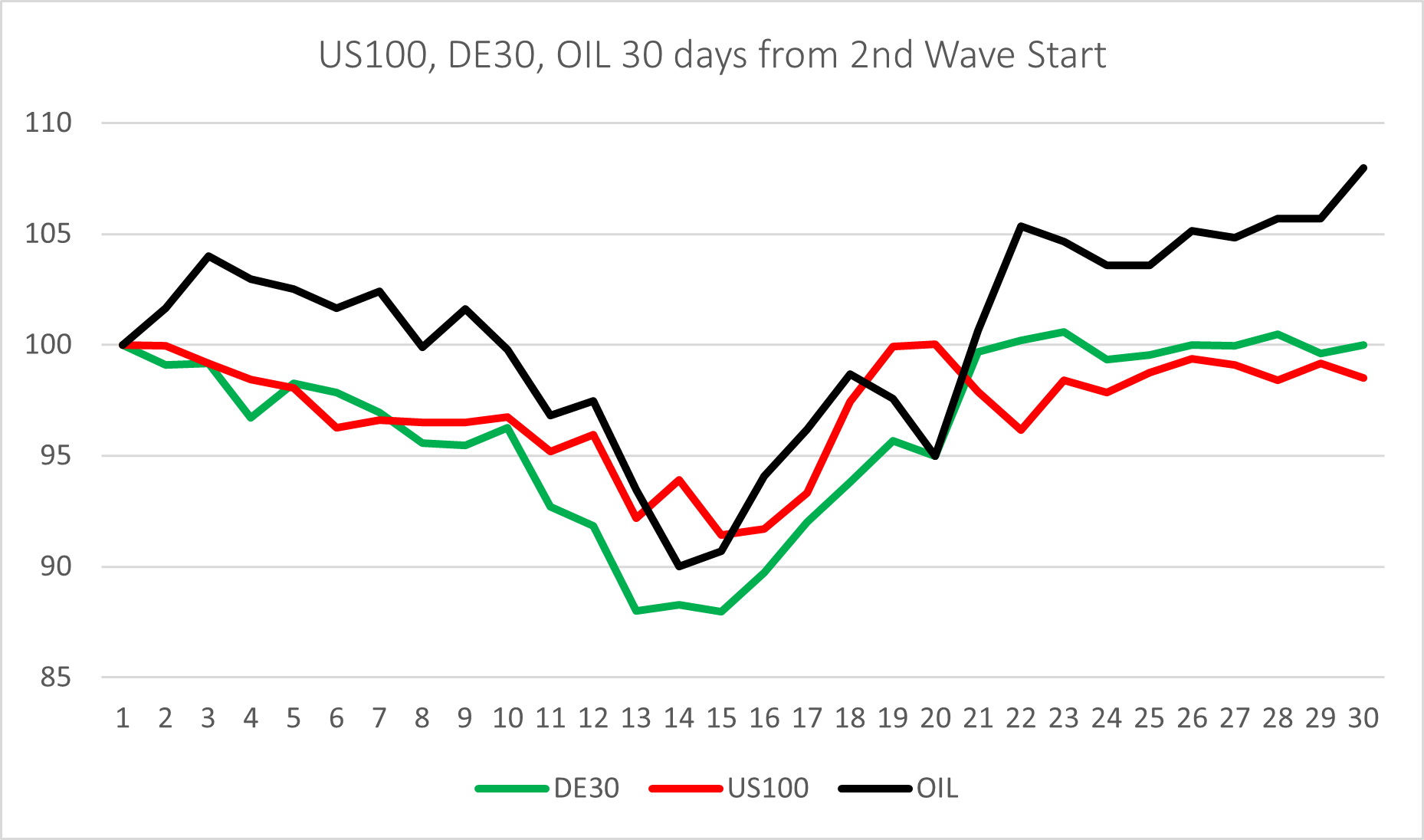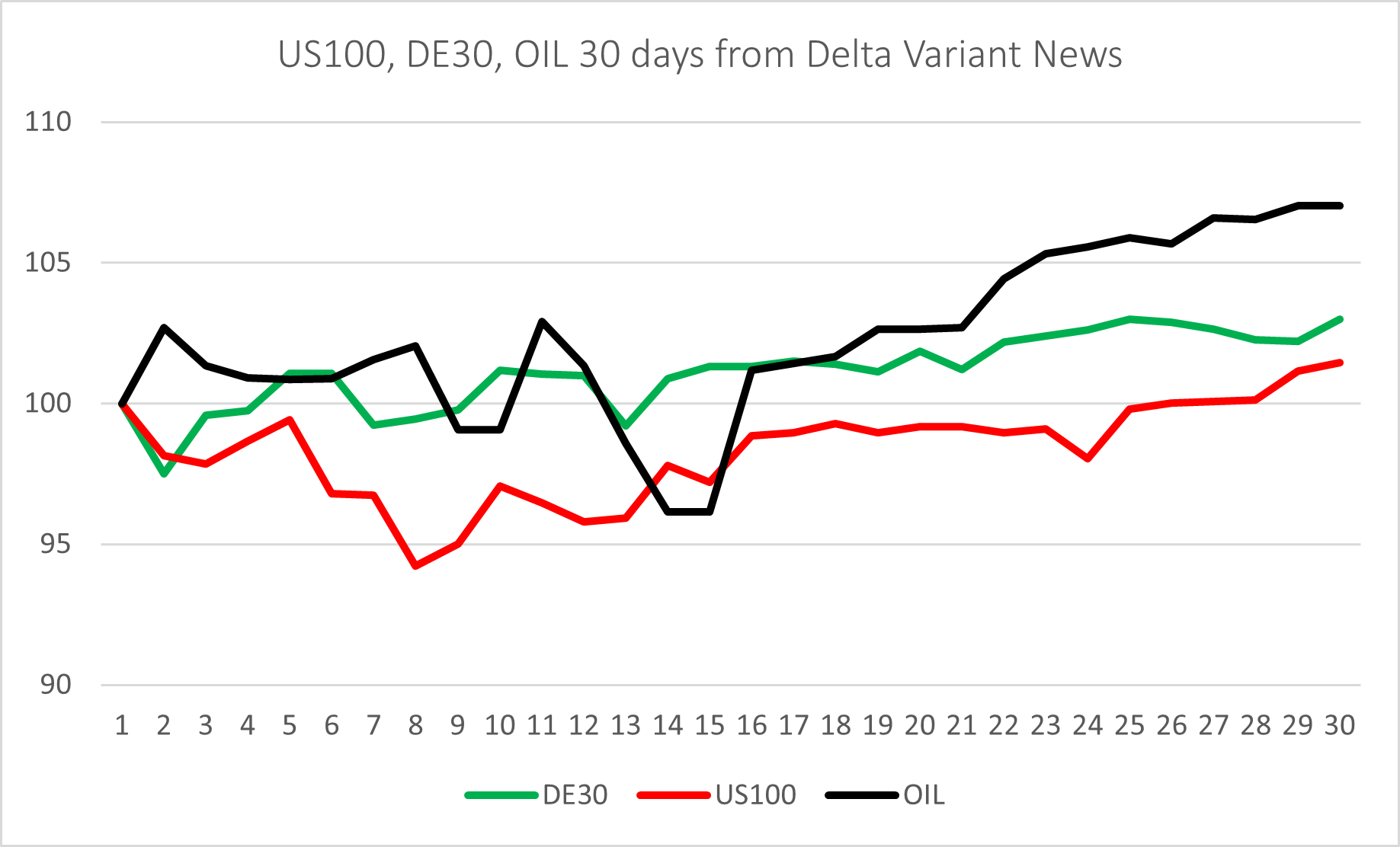News of yet another, more dangerous Covid variant took markets by a surprise today. Risk assets like equities or industrial commodities plunged while safe haven bets soared. Investors have once again turned to so-called "pandemic winners" and away from oil and travel companies. Declines in asset prices during previous pandemic waves were rather short-lived but this time a lot will depend on whether it will affect monetary policy outlook or not.
New coronavirus variant found in South Africa
New coronavirus variant that is in the centre of attention today was found in South Africa. While new Covid variants are surfacing from time to time, this one seems different as it is said to be much more transmissible and much more resilient to antibodies. On top of that, it is already widespread across South Africa and some cases were reported in Asian countries. As there is a risk that available treatments and vaccines will be ineffective against this strain, the threat of new lockdowns being imposed looks real. Not to mention that numerous countries, especially in Europe and Asia, have already considered imposing tougher restrictions to combat recent surge in cases.
Winners and losers
Magnitude of moves in the markets today is large and it is easy to distinguish winners from losers in this situation.
Oil as well as travel and aviation stocks are taking the biggest hit. It should not come as a surprise as lack of effective treatment against a new variant would likely push governments to impose travel restrictions in order to curb or at least delay spread of virus. Energy commodities, like oil or gasoline, drop 5-6% and Euro Stoxx 600 Travel and Leisure sub-index is also 5% down on the day.
As investors flee risky bets, safe haven assets like Swiss franc, Japanese yen or gold are on the rise today. Stock traders, trying to get ahead of potential lockdown announcements, turn their attention to the so-called "pandemic winners". Food delivery companies, providers of "stay-at-home" software as well as medical stocks defy overall bearish sentiment and trade higher today.
 OIL continues to slide off its post-pandemic peak, dropping 5% today. Risk of new lockdowns, especially restrictions on travel, threatens to result in another oil demand destruction. Source: xStation5
OIL continues to slide off its post-pandemic peak, dropping 5% today. Risk of new lockdowns, especially restrictions on travel, threatens to result in another oil demand destruction. Source: xStation5
Commodities drop - inflation relief?
As strong declines can be spotted across commodities markets, especially oil and industrial metals, one could think that inflation cool-off is coming. However, the situation is not so obvious. Recall that at the beginning of the pandemic in 2020 commodity prices also plunged. While this provided some inflation relief at first, supply chain issues resulting from lockdowns pushed commodity prices to multi-year highs in the following months and levying new restrictions now could only magnify those still-not-resolved issues. A point to note is that the first wave of pandemic took markets by surprise and the global economy was by no means prepared for it. Massive oil demand destruction resulted in huge oversupply that eventually pushed oil prices into negative for the first time in history. Right now the situation is different. OPEC+ defied calls by United States and other countries to boost supply as it expected pandemic to intensify in winter season and mobility to decrease. It turns out oil producers were right, although they could not predict new virus variants, and seem to be better prepared for the situation now.
 While commodity prices plunged in the early-2020, all of the losses were recovered within a few months. Source: Bloomberg, XTB
While commodity prices plunged in the early-2020, all of the losses were recovered within a few months. Source: Bloomberg, XTB
Lessons from second pandemic wave and Delta wave
Drop in asset prices at the beginning of 2020 was unprecedented. Investors were completely surprised by lockdowns and rushed to trim risk bets as if the end of the world was coming. However, as the world found its way through the crisis and markets recovered quickly, investors were more sanguine during the second pandemic wave in Autumn 2020 or the Delta variant wave in Spring 2021. As one can see on the charts below, Nasdaq-100 (US100), DAX (DE30) and Brent (OIL) experienced much smaller moves than during the initial pandemic shock. Moreover, those markets almost completely recovered within the first 30 trading days following the start of the second and Delta pandemic waves. Of course, it does not mean that the story will repeat this time as there are additional factors to consider. The most important being whether the situation will force Fed to delay policy tightening or not. Nevertheless, "fear-of-missing-out" and "buy-the-dip" approaches were very common among investors since the start of the pandemic and made pandemic drop good buy opportunities in the markets.
 DE30, US100 and OIL during the first 30 trading sessions of the second wave of the pandemic. Source: Bloomberg, XTB
DE30, US100 and OIL during the first 30 trading sessions of the second wave of the pandemic. Source: Bloomberg, XTB
 DE30, US100 and OIL during the first 30 trading sessions of the Delta variant wave. Source: Bloomberg
DE30, US100 and OIL during the first 30 trading sessions of the Delta variant wave. Source: Bloomberg

US100 gains 1% before Nvidia earnings📈

Will Powell remain hawkish❓

Market story: Valentine's Day has never been so expensive? The prices of coffee, chocolate and gold are at an all-time high

Will the ECB be forced to follow the Fed?
The content of this report has been created by XTB S.A., with its registered office in Warsaw, at Prosta 67, 00-838 Warsaw, Poland, (KRS number 0000217580) and supervised by Polish Supervision Authority ( No. DDM-M-4021-57-1/2005). This material is a marketing communication within the meaning of Art. 24 (3) of Directive 2014/65/EU of the European Parliament and of the Council of 15 May 2014 on markets in financial instruments and amending Directive 2002/92/EC and Directive 2011/61/EU (MiFID II). Marketing communication is not an investment recommendation or information recommending or suggesting an investment strategy within the meaning of Regulation (EU) No 596/2014 of the European Parliament and of the Council of 16 April 2014 on market abuse (market abuse regulation) and repealing Directive 2003/6/EC of the European Parliament and of the Council and Commission Directives 2003/124/EC, 2003/125/EC and 2004/72/EC and Commission Delegated Regulation (EU) 2016/958 of 9 March 2016 supplementing Regulation (EU) No 596/2014 of the European Parliament and of the Council with regard to regulatory technical standards for the technical arrangements for objective presentation of investment recommendations or other information recommending or suggesting an investment strategy and for disclosure of particular interests or indications of conflicts of interest or any other advice, including in the area of investment advisory, within the meaning of the Trading in Financial Instruments Act of 29 July 2005 (i.e. Journal of Laws 2019, item 875, as amended). The marketing communication is prepared with the highest diligence, objectivity, presents the facts known to the author on the date of preparation and is devoid of any evaluation elements. The marketing communication is prepared without considering the client’s needs, his individual financial situation and does not present any investment strategy in any way. The marketing communication does not constitute an offer of sale, offering, subscription, invitation to purchase, advertisement or promotion of any financial instruments. XTB S.A. is not liable for any client’s actions or omissions, in particular for the acquisition or disposal of financial instruments, undertaken on the basis of the information contained in this marketing communication. In the event that the marketing communication contains any information about any results regarding the financial instruments indicated therein, these do not constitute any guarantee or forecast regarding the future results.


